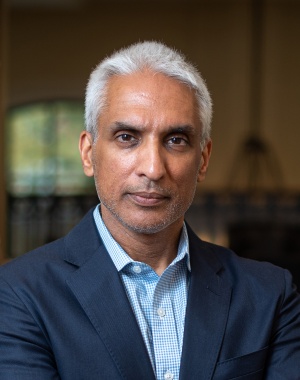Addressing nationalist extremism in North America: Policy tools & frameworks
Speaker
Prof. Raul Guillermo Benítez Manaut, Mr. Richard Fadden, Mr. Thomas WarrickDate & time
Location
This is a Virtual Event.Nationalist extremism poses mounting challenges around the world, including in North America. This web-based panel discussion will focus on the policy tools and frameworks available for countering nationalist extremism in Mexico, Canada and the United States. How have each country’s laws and security institutions evolved since 9/11 to deal with new nationalist threats? What are the limits of existing policy approaches and the key debates surrounding them?
This event will be the third in a series organized for the 2021-22 North American Colloquium convened jointly by the Autonomous National University of Mexico, University of Toronto, and University of Michigan. Two faculty members at the University of Michigan’s Gerald R. Ford School of Public Policy, John Ciorciari and Javed Ali, will host and moderate the event.
About the speakers
Raul Guillermo Benítez Manaut is a professor at the Autonomous National University of Mexico (UNAM), where he has worked within the Center for Research on North America since 2000. He has been the president of the civil society organization Collective for the Analysis of Security with Democracy (Casede) since 2006, and he is a longstanding member of the Latin American Studies Association.
He is the author of numerous books and many scholarly articles on security and geopolitics in Latin America, with particular attention to North and Central America. Among other roles, he has been a visiting academic at the Woodrow Wilson Center in Washington, D.C., a visiting professor at Columbia University, a professor at the U.S. National Defense University’s Center for Hemispheric Defense Studies, a visiting researcher at the Center for North American Studies, and a professor at the International Service School at American University. He received his doctorate in Latin American Studies at UNAM.
Richard Fadden is a Senior Fellow at the University of Ottawa’s Graduate School of Public and International Affairs. He served as National Security Adviser to the Prime Minister of Canada (2015-2016) and previously as Deputy Minister of National Defence (2013-2015) and Director of the Canadian Security and Intelligence Service (2009-2013). He also served as Deputy Minister for Citizenship and Immigration Canada (2006-2009) and Natural Resources Canada (2005-2006). He was President of the Canadian Food Inspection Agency (2002-2005) and Deputy Clerk and Counsel in the Privy Council Office (2000-2002), during which he assumed the additional duties for Security and Intelligence Coordinator in 2001. Over the course of his career, he worked in a variety of positions in the Department of External Affairs, the Office of the Auditor General of Canada, Natural Resources Canada and the Treasury Board Secretariat. He holds a Graduate Diploma in Law from the University of Ottawa, a Bachelor of Laws from the University of Montreal and a B.A. (Political Science) from McGill University. He was made an Officer of the Order of Canada in 2017.
Thomas Warrick is a nonresident senior fellow at the Atlantic Council with its Middle East Programs and the Scowcroft Center for Strategy and Security’s Forward Defense practice. Previously, he served from August 2008 to June 2019 as Deputy Assistant Secretary for Counterterrorism Policy at the U.S. Department of Homeland Security (DHS) and a career member of the Senior Executive Service. From 1997 to 2007, he served in the U.S. Department of State on a variety of Middle East and international justice issues. For the Department of Homeland Security and the State Department, he has worked on national strategies involving counterterrorism, Iran, defeating ISIS, Iraq, Syria, Turkey, Lebanon, Egypt, South Asia, Africa, West Africa Counterterrorism, Somalia, Lebanese Hezbollah, Afghanistan, Pakistan, Israeli-Palestinian affairs, countering terrorist propaganda, Terrorist Travel, Terrorist Use of the Internet, and Russia. He also has spent seventeen years as an international lawyer in private practice, representing companies in connection with investments in the Middle East and elsewhere.

